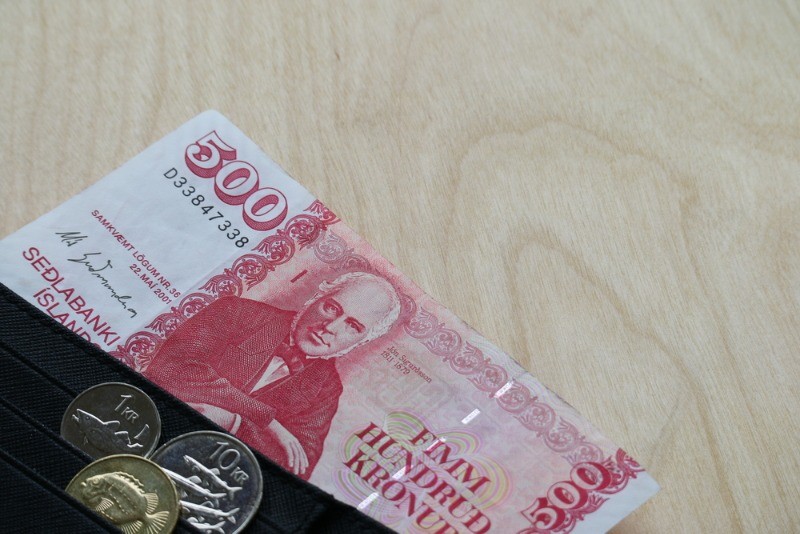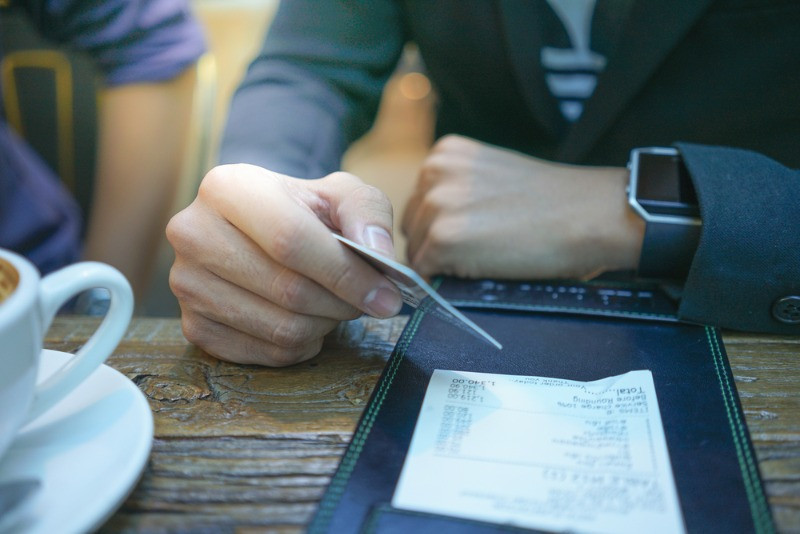Due to its remoteness from the rest of Europe, Iceland has developed some very unique cultural habits. The language has barely changed in a thousand years, most Icelanders have patronymic last names (the first name of their father, plus ‘son’ or ‘dóttir’) and despite being in the Schengen Area, Iceland still has a population of less than half a million people. Additionally, Icelanders don’t have the same tipping etiquette as many other countries you may have visited.
Iceland Tipping Etiquette
In short, there isn’t really a tipping etiquette in Iceland. That is, it is not expected. The wages are fairly high here, so locals don’t rely on tips to pay their living expenses like in North America. The minimum wage is essentially a living wage. However, it’s neither rude or illegal to leave a tip; it will be appreciated, because although the wages are high, so are the living costs.
Do I Need to Leave a Tip in Iceland?
As I said above, there’s no tipping law here and it is not considered rude, but there’s no obligation to do so. If you do feel that someone has been particularly helpful, by all means, you could offer them something. If you want to do this, though, ensure you know the exchange rate from your currency to Icelandic currency, the Icelandic Krona. You don’t want to shock someone by leaving them an oversized tip or confuse them by offering a tiny one.
One krona, for example, is basically useless by itself in Iceland. On card readers in North America, when you pay your bill there is usually an option to add a tip. No such option will appear in Iceland, so if you want to tip you will have to do it in cash. But know that most restaurants already have a service fee added onto your bill anyway.
In some places, such as bakeries, cafes, and restaurants, you will notice a tip jar. Sometimes these tips are for the staff to dispense between themselves. But other tip jars are collecting for the Iceland Red Cross or another charity. Keep a look out for these and if you feel like donating to a good cause, throw some spare change in.
What Not to Do in Iceland
Don’t barter. The prices of all things—meals, excursions, service fees—have been calculated to ensure expense coverage and a fair profit. It’s not the way to try to haggle sellers to lower their prices here. Since no one is expecting any tips, their sales are their livelihoods.
Tipping in Hotels
Concierges, bar workers, cleaning attendants, and other service personnel will not expect a tip. But we all like human connection, and sometimes you want to show your gratitude to someone for how hospitable and helpful they have been. A smile and a thank you goes a long way, and although the locals love visitors without expecting anything in return, they will not say no to a gift. If you are on a tour, for example, you could offer to buy lunch for your guide or driver on a scheduled stop.
Cash in Iceland
Cash is gradually vanishing in Iceland; most Icelanders don’t carry any. In most outlets, you can still pay cash. But there are some places—like unmanned petrol stations— where you must have a chip and pin card to use the facilities. Keep this in mind when traveling around the country. Remember to inform your bank that you will be using your card in Iceland, and check your conversion and foreign usage fees so there are no surprises.

All ATMs will charge a withdrawal fee, so it may be better to just use your card wherever you go. There are no minimum purchase amounts on card purchases here. Of course, if you are planning to tip those extra helpful service people, don’t forget to take some cash out.
Prices in Iceland
Before you arrive here, you will probably have heard about how expensive Iceland is. Well, it is compared to some places. But most countries will seem pricey through the eyes of a tourist. If you’re eating out at restaurants every night and joining guided coach tours, your holiday fund will need to be big. But if you think like a local, you can spread your spending money out further, and do more with your time here.
Iceland is full of apartments to rent, so you could take that option and cook your own meals, shopping at the reasonably priced supermarkets such as Bonus or Krónan. Rather than taking guided tours, you could hire your car in Reykjavik and make your own way around. This also gives you the freedom to stop wherever you want, for however long you want.
Other Tips - Traveling Around Iceland
For those that are planning to leave Iceland’s capital, Reykjavík, and explore more of Iceland, know that the vibe changes dramatically when the city is behind you. The south-west capital region, which includes Reykjavík and six municipalities, contains about two-thirds of the country’s population. Outside of that, towns and villages are few and far between.
Keep this in mind when you want to stock up on supplies and fill up your gas tank. And while most people in Iceland speak fantastic English, in some of the more remote areas communication may be a little more difficult. Learn a few basic words to make the locals smile and for a fun road trip game, try to pronounce the words written on road signs.

Note that the weather in Iceland is unpredictable. There’s even a saying for it: “If you don’t like the weather in Iceland, just wait five minutes.” At times, it can become extreme. Sandstorms and snowstorms are not uncommon here, due to the strong wind that flows in from the ocean. Check the weather forecast before you leave for a trip on the Iceland Meteorological Office’s website and be aware that if the weather becomes dangerous to travel in, roads will be closed.
You can check if your route is clear on Road.is. Don’t travel if there is a severe weather warning in place, because if you become stuck in a remote area it may take hours for help to reach you.
Even in the summer, Iceland is not known for its warmth. It’s best to always travel with warm, waterproof clothing just in case. Remember that in the winter, there is very little sunlight, and in the summer, the sun barely sets. Both have their positives and negatives, but in either case, it’s important to keep a consistent sleeping pattern (and bring a sleep mask in the summer).


 By
By


